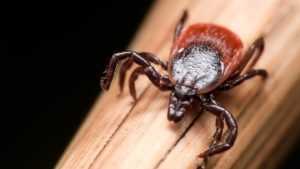What is tick-borne virus? What are the symptoms of tick-borne virus infection? How can homeopathy help you? All of this answered, in this post and of course our doctors always there to help you. Just fill in your details in the form down below and we will answer all your questions for FREE!

What is Tick-borne virus?
Tick-borne diseases are the set of diseases which can infect humans and other animals which are caused by infectious agents transmitted by tick bites.
What are the causes of Tick-borne Virus?
Places and areas which have woods, bushes, high grass, or leaves are likely to have more ticks. Ticks are more active comparatively in warmer climatic conditions. Their bite causes symptoms.
What is the mode of transmission?
When the infected ticks bite it causes the infection.
What is the incubation period?
The incubation period is 5–14 days after the bite of an infected tick. However, because tick bites are not painful, hence many people will not remember or recall a tick bite.
What are the signs and symptoms of Tick-borne Virus?
The signs and symptoms of Tick-Borne virus are as follows: –
Tick bites are mostly harmless and may produce no symptoms at all. However, if a person allergic to tick bites, you may experience:
• pain or swelling at the bite site
• a rash
• a burning sensation at the bite site
• blisters
• difficulty breathing, if severe
• Inflammation near bite site
• a full body rash
• neck stiffness
• a headache
• nausea
• weakness
• muscle or joint pain or achiness
• a fever
• chills
• swollen lymph nodes
What are the investigations of Tick-Borne Virus?
Blood work is as follows: –
-Tick-Borne Disease Serochip also known as (TBD Serochip)
This test helps to identify and distinguish between Borrelia burgdorferi, the pathogen responsible for Lyme disease, and seven other tick-borne pathogens.
What treatment is advised for Tick-borne Virus?
No specific medication is indicated. The treatment is mostly symptomatic.
When the symptoms are seen most patients will be treated with tetracycline, doxycycline, or chloramphenicol to cover for other tick-borne diseases.
What are the complications of Tick-borne virus?
The complications are as follows: –
• Renal or respiratory failure
• Peripheral neuropathies
• Disseminated intravascular coagulation (DIC)-like coagulopathies
• Rhabdomyolysis
• Hemorrhage
What is the differential diagnosis of Tick-borne Virus?
The differential diagnosis of Reoviridae are as follows: –
-Vector Dermatitis
-Urticaria
-Mosquito bites
What management is helpful for Tick-borne Virus?
Prevention of the tick bites is the best way to avoid this illness.
• Wearing a long sleeve shirt and pants when walking in the woods or grassy areas where ticks are common.
• Use tick repellent that’s at least 20 percent DEET.
• Treat clothes with 0.5 percent permethrin
• Regular bath within two hours of being outdoors is recommended.
• Examine the skin closely after being in tick-prone areas, especially under arms, behind ears, between legs, behind knees, and in hair.
What the names of commonly indicated Homeopathic remedies of Tick-borne Virus?
The Homeopathic remedies are as follows: –
• Ledum Pal
• Nux vomica
• Phytolacca
• Apis Mellifica
• Urtica Urens

 If you are unsatisfied with our treatment and do not want to continue the medicines you can ask for refund within 24 hours of making the payment.
If you are unsatisfied with our treatment and do not want to continue the medicines you can ask for refund within 24 hours of making the payment.